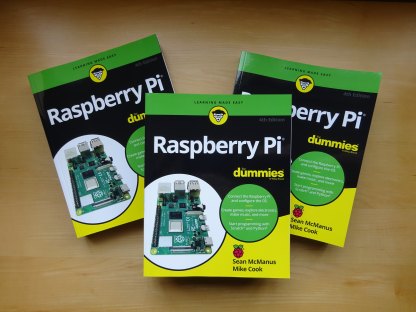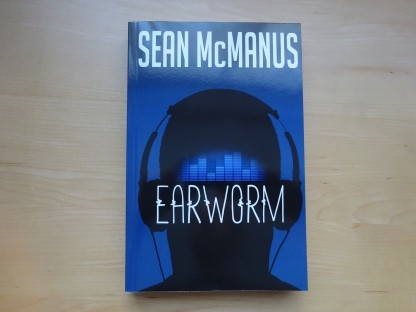
100 Top Tips: Microsoft Excel
Power up your Microsoft Excel skills with this powerful pocket-sized book of tips that will save you time and help you learn more from your spreadsheets.
21 January 2016
Somebody once said they would start jogging the first time they saw a jogger smile. That's a view I used to subscribe to too, but over the last year or so I've taken up running using the Couch 2 5K programme, and I'm writing this blog to recommend it to anyone who's interested in starting running. The programme has taken me from no running experience (and no real history of exercise) to completing a 10K run in the Olympic Park.
Couch 2 5K (or Couch to 5K) provides a structure for starting gently, and working your way up. In week one, you do several short bursts of running, with walking between them. Gradually, over the following weeks, you run more and walk less. By week 10, you're able to run 5K (or for 30 minutes) without stopping. There are many ways you can use the Couch 2 5K framework. The NHS provides a series of podcasts that you can listen to while you run, with cues for starting and stopping your run. I found this a great way to do the programme, because it saves you having to worry about timings, and they've chosen some uplifting music to carry you through the run. There's also an element of surprise if you don't read ahead: Laura will tell you at the start of the run what's coming up. One week I remember feeling like there was a significant step up, but the course prepares you, so it doesn't ask you to do something you haven't trained for, and I was hugely uplifted to achieve that week's goal. If I had read ahead I might not have felt ready to take it on.
The programme works on the assumption you can run every other day, but I can manage twice a week at the most, and had my programme broken by our trip to China, so it took me longer to complete. Many people are put off running or even injure themselves by trying to go too far or too fast too soon, so it's better to go at a pace that works for you and fit the programme into your life comfortably.

Leading the charge around the Olympic Stadium at the end of my 10K! (Many, many more not shown ahead of me.) Photo by Tim Benson.
I started off with my normal trainers and got some proper running trainers when it was clear I was going to stick with it. Go to a running shop and let them do the treadmill analysis on you: with the right shoes, they can correct your gait to make your run smoother and safer.
After completing the podcast, I started putting together my own running playlists. Initially, I would put together a 30 minute playlist of running music, with a warm up and warm down track. By knowing the final song, I was able to use the playlist as my cue to stop running. Knowing the number of songs also helped me track my progress. I put the longer songs first as a psychological trick so I completed the songs more quickly at the end when I was more tired. After a while, I moved to using a playlist of running music and setting it on shuffle. I update that playlist with new music from time to time, and take out tracks that turn out not to be much fun to run to. My playlist includes a lot of 80s 12" remixes, and I get a real boost from some of the Depeche Mode remixes in particular. Sometimes I'll be feeling really drained, and then a track comes on that gives me a real surge of energy.
The problem with running for a set amount of time is that when you have a hard run you don't know why. There are good and bad runs, and you don't know what you'll get until you go. But there's a difference between a run that feels hard because you're having an off day, and a run that feels hard because you went faster, further or steeper than before. Getting a Garmin Forerunner GPS Watch really helped me to understand my running activity. On a day when it felt tough, it often showed me that was because I'd worked harder, rather than because I was having a rubbish day. It's helped me to measure performance and coach myself after the Couch25K ended, and many runners consider a GPS watch (or tracking app on a phone) to be an essential investment. At the Olympic Park run before the race, there was a constant chirrup of runners starting their watches. One runner had a shirt on that said: "If I collapse, pause my Garmin!"
So if you're curious about running, or just looking for some exercise you can do anywhere, any time, with minimal equipment, I hope you'll check out the Couch 2 5K. I won't pretend I find running easy and I have no great ambition to push myself to go ever further or faster. But I get out when I can and find it invigorating. Once in a while, you might see me in the flow, running steadily and enjoying my music. Maybe even, sometimes, with a smile on my face.
Permanent link for this post | Blog Home | Website Home | Email feedback
© Sean McManus. All rights reserved.
Visit www.sean.co.uk for free chapters from Sean's coding books (including Mission Python, Scratch Programming in Easy Steps and Coder Academy) and more!

Power up your Microsoft Excel skills with this powerful pocket-sized book of tips that will save you time and help you learn more from your spreadsheets.

This book, now fully updated for Scratch 3, will take you from the basics of the Scratch language into the depths of its more advanced features. A great way to start programming.

Code a space adventure game in this Python programming book published by No Starch Press.

Discover how to make 3D games, create mazes, build a drum machine, make a game with cartoon animals and more!

Set up your Raspberry Pi, then learn how to use the Linux command line, Scratch, Python, Sonic Pi, Minecraft and electronics projects with it.

In this entertaining techno-thriller, Sean McManus takes a slice through the music industry: from the boardroom to the stage; from the studio to the record fair.